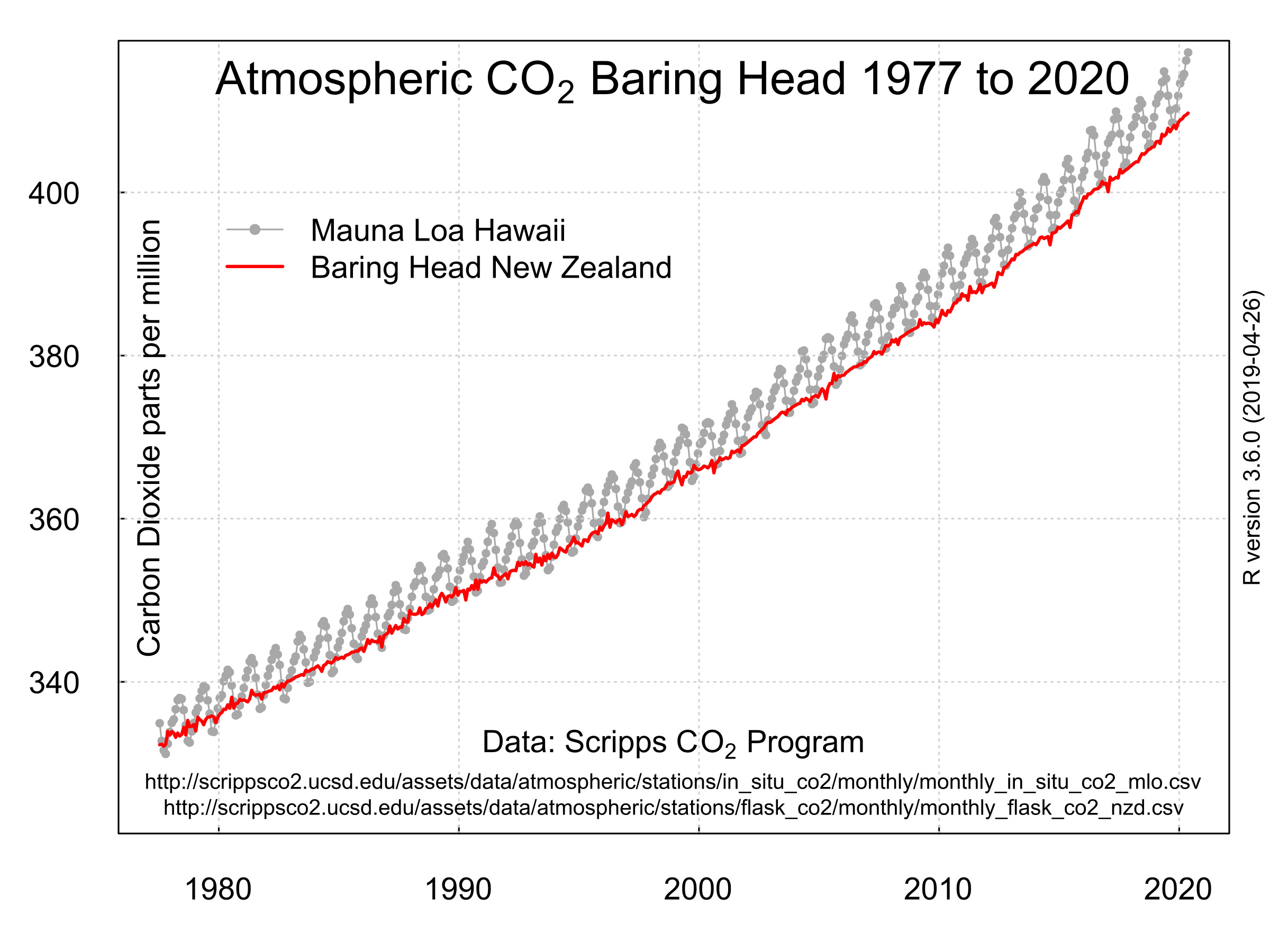This is what all political efforts to reduce CO2 emissions have accomplished:

Meanwhile:
It is often argued that individuals are not helpless, they can join political movements intended to stop climate change.
I’m sorry, but it’s too late. The time to do that was decades ago. People did do it, and they failed. They didn’t move the needle at all.
We’re done. Climate change is happening. We have broken the old homeostasis and where the new homeostasis is, there is no way of telling. Everything we did doesn’t show up in the CO2 chart, while meanwhile we’re actually accelerating destroying one of the world’s two most important tropical rain forests, as the temperate rain forest of the Northwest burns down, changing the Pacific Northwest into a different ecosystem, one which will fix a lot less carbon. In the permafrost areas, permafrost is literally burning and exploding out of the ground, releasing methane, a far more potent greenhouse gas.
The world’s most powerful state, the US, is ruled by an oligarchy. In 2014, Princeton did a study which found that the opinion of anyone who is not part of the oligarchy (a.k.a., probably you, the reader) has no effect on what the government does. NONE.
This should hardly be a surprise to anyone who was awake during the last 40 odd years.
China is still industrializing and modernizing. More and more cars, more and more power plants, vast use of oil, gas, and coal.
The Paris climate accords, which driveling idiots gushed over, had no enforcement mechanism. None.
Politics is not going to stop climate change. Period.
Climate change is a FACT, it is past the point where it can be stopped. It is happening, now, and catastrophically. The catastrophic period has occured: Lytton, in British Columbia Canada, had Canada’s highest ever temperature, then burned 90 percent down. The fires over B.C were so fierce they were causing their own thunderstorms, complete with lightning strikes starting new fires.
YOU ARE NOT HELPLESS.
When the Titanic is going down, some people survive. When the Roman Empire is collapsing, some people survive.
I’m not saying “don’t engage politically,” at least in countries where it won’t get you dead or locked up or beaten to the point of lifelong disability.
What I am saying is: Don’t count on political action to save you from climate change.
Even if it works, the best it could and can do is slightly mitigate what is going to happen, and convince governments to prepare and maybe help people who aren’t in the top .1 percent of the population.
Your power isn’t in stopping climate change by getting government and corporations to change their behaviour — it is too late. They will change when the oligarchy decides to change, and not before, or when the oligarchy is overthrown.
BUT, you can change how you prepare. Where you live, what your housing is like, who your friends are, what your skills are, and so on. Perhaps it is time for some people to join a monastery or a mutual aide society (or church that operates as one). Perhaps it is time to migrate to a place where the bottom level aquifers aren’t polluted. Perhaps… well, whatever.
Catastrophes have started. They will continue. Whether you survive and how well will be determined, to a large extent, by you: You must prepare and adapt, and so must your friends and family. You cannot count on government or corporations, though they will give some aid. Helping you will never be a priority unless it serves the interests of the oligarchy (or CCP, or whatever).
In some countries (Vietnam, for example) the well-being of the masses is important to the elites, but in most, and certainly most developed, countries, it is not. Whether it is or not, climate change is now written into our future’s history, past the point of no return.
So don’t be fooled; don’t waste your life and energy trying to stop the Titanic from sinking after it has already been holed.
Instead, this is a self-preservation and triage situation: Decide what you can do to save yourself and some others and do that.
This isn’t an article I take any pleasure in writing. I am one of those who spent a decent chunk of their life trying to change politics to stop climate change. I, and those like me, failed (most people didn’t even try, so I don’t have any real guilt about the failure).
I wasted my life trying to stop climate change from reaching the runaway stage, but it has.
So, now, as one of those who saw this coming for decades and wrote about it repeatedly, listen to me, and do what you can to save your own life and the lives of others you care about.
(My writing helps pay my rent and buys me food. So please consider subscribing or donating if you like my writing.)

